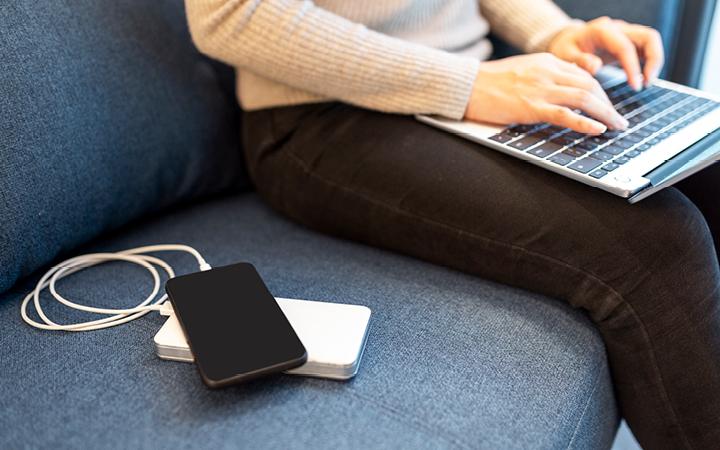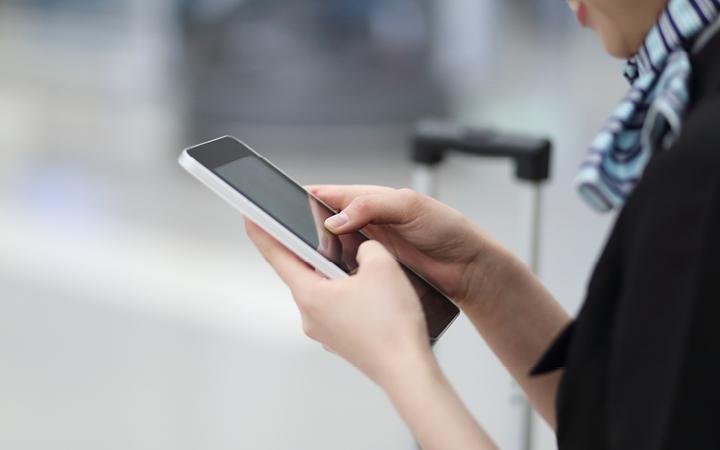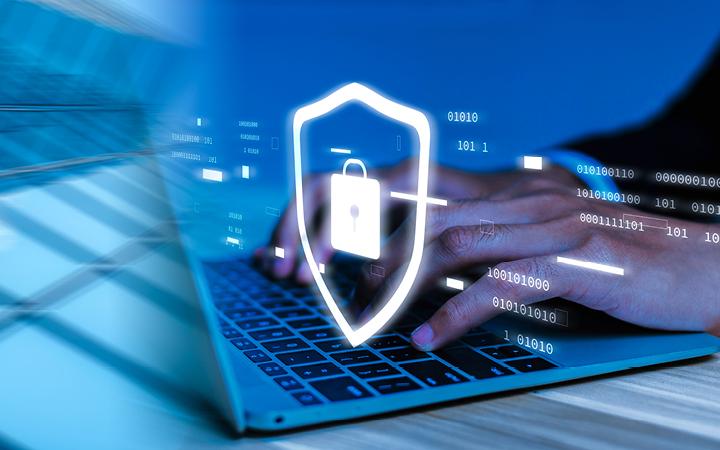INSIGHT
Is your corporate travel cyber-safe? Essential tips for your company and your travellers
Tips for Cyber Safety:

Be wary of USB Charging
Always be wary of public USB charging stations on your business trips. These seemingly convenient options, often found in airports and hotels, can pose a security threat known as ‘juice jacking.’ Malicious actors can tamper with charging ports to install malware on your devices that steals data like passwords and financial information. This can compromise your company’s sensitive information and even grant remote access to your device. To stay safe, consider carrying a portable power bank or using a wall outlet with your own certified charger. For an extra layer of protection, you can invest in a small data blocker device that plugs in between your cable and the charging station, allowing power to flow through while blocking data transfer.

Update software regularly
Software updates are the unsung heroes of digital security. By ensuring your software, including operating systems and applications, is up to date before you take off, you’re fortifying your defences against cyber threats. This is critical for not only your laptops, but also any tablets or smartphones you might be taking with you.
Cybercriminals are always on the lookout for loopholes to exploit in outdated software. But with regular updates, you're essentially staying one step ahead of the game. Encourage users to enable automatic updates whenever possible, ensuring their devices consistently benefit from the latest security patches. And remember, it's not just operating systems that require attention; applications, plugins, and firmware also demand regular updates.
Why all the emphasis? Consider the lessons from past cyber-attacks on large organisations. Many of these incidents stemmed from unpatched vulnerabilities in outdated software, leaving organisations vulnerable to exploitation. Don’t underestimate the critical role that timely updates play in safeguarding against cyber threats.

Beware of public Wi-Fi
What are the risks associated with public Wi-Fi networks? It’s essentially the hunting grounds for cyber threats. Connecting to unsecured public Wi-Fi leaves you vulnerable to hackers lurking in the shadows. These networks are breeding grounds for eavesdropping, where cybercriminals can intercept your data as it travels through the network.
To safeguard your internet activities while on the go, consider employing a Virtual Private Network (VPN). A VPN acts as a shield, encrypting your internet traffic and shielding sensitive data from prying eyes. By creating a secure tunnel between your device and the internet, a VPN ensures that your online activities stay private and protected. A VPN encrypts your data, making it unreadable to anyone trying to intercept it. This encryption extends beyond public Wi-Fi networks, safeguarding your privacy even on untrusted networks. When choosing a VPN service, opt for reputable providers known for their commitment to customer privacy, robust security features and reliable performance. VPNs managed and provided by your employer will always be best where available.
Also, refrain from accessing sensitive information, such as online banking or company accounts, while connected to public Wi-Fi networks. By exercising caution and using VPN technology, travellers can mitigate the risks associated with public Wi-Fi and enjoy a secure browsing experience wherever they go.

Who’s looking
Corporate Travellers need to be extra mindful of "shoulder surfers" on your trips. In crowded airports, airplanes, and co-working spaces, someone could be glancing over your shoulder to steal sensitive information displayed on your laptop or tablet. This stolen data could include login credentials, confidential documents, or even trade secrets. To stay protected, consider using privacy screens for your devices, working in areas with limited visibility of your screen, and minimising the amount of sensitive information you access in public settings. Always lock your device screen, or better still take the device with you, if you are stepping away from it, even if just for a minute.

Secure devices and data
Every device you bring on a business trip increases the potential attack surface for cybercriminals. Lost or stolen laptops, phones, or tablets can expose sensitive company data. To minimise risk, adopt a "travel light" mentality. Only pack the devices that are absolutely essential for your trip. Consider cloud-based solutions for accessing files and documents, which eliminates the need to carry physical storage devices. If you must bring a personal device, ensure it has strong passwords and up-to-date security software. By limiting the number of devices you travel with, you can significantly reduce the potential for data breaches and keep your company's information safe.
Imagine you're on a business trip and your laptop or smartphone goes missing. Without encryption, anyone who gets their hands on your device could potentially access confidential data, putting your organisation at risk.
To mitigate this risk, it's essential to encrypt data stored on devices, including laptops, smartphones, and USB drives. Fortunately, many operating systems offer built-in encryption features that users can enable to protect their data. Additionally, third-party encryption tools provide an extra layer of security for added peace of mind. Your organisation might already have this in place to protect data on Corporate devices.
Implement travel policies
Let's talk about travel policies – your roadmap to cybersecurity during corporate travel. It's crucial to set up clear guidelines that address cybersecurity concerns specific to travel, ensuring the safety of your company’s information and devices. Does your organisation have a policy on travel?
Firstly, consider restrictions on sharing company information or using personal devices for work-related tasks. By setting boundaries, you're safeguarding sensitive data from potential threats. It's also essential to emphasise the importance of compliance with travel policies. Make sure travellers understand the consequences of non-compliance, reinforcing accountability and responsibility. By establishing clear travel policies with cybersecurity guidelines, you're creating a culture of security awareness and protecting your company's assets wherever your team go.
By following these tips, you can help mitigate risks and safeguard your sensitive information while ensuring a smooth and secure travel experience for your travellers.
Need help with cybersafe travel policy? FCM can help you create and effectively implement a travel policy that suits you and your travellers.
